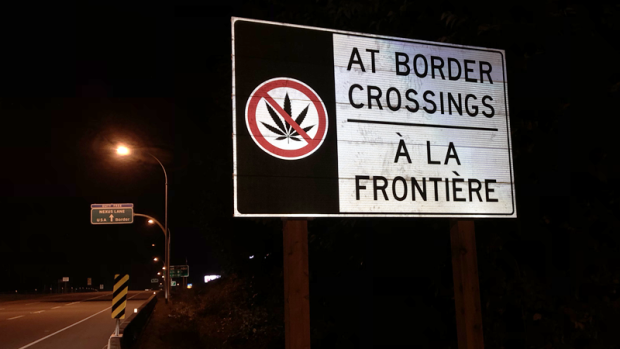The Cannabis Act became effective on October 17, 2018 to best protect the health and safety of Canadians. Even though it’s legal to use marijuana (as long as you are 18 or 19 years of age, depending on the territory, etc.), there are still strict laws that must be followed in order to ensure that marijuana is used legally. For example, it is illegal to bring marijuana across the Canada-U.S. border, no matter the amount.
Now that the recreational use of marijuana is legalized in Canada, can you enter the country even if you have a past conviction of marijuana possession? Let’s find out the answer to this question and explore the options you have to enter Canada legally.
Entry to Canada is Influenced by Your Conviction
If you are a US citizen or resident who has one or more convictions for simple possession of marijuana under 30 grams, you may be allowed to enter Canada since this is no longer considered a crime. However, many marijuana related offenses can still cause you to be denied entry at the border. For example, if you have a conviction that involved being in possession of more than 30 grams of marijuana, you could be denied access to Canada.
Before October 17, 2018, possession of less than 30 grams of cannabis was considered a summary offense, where possession of more than 30 grams of cannabis was considered an indictable offense. Therefore, any American traveling to Canada before this date was deemed criminally inadmissible if he or she had one conviction of cannabis possession of more than 30 grams, or more than one conviction of cannabis possession of less than 30 grams.
However, it’s no longer illegal to possess less than 30 grams of marijuana purchased from an authorized distributor. So, if you were charged with possession of less than 30 grams of cannabis in the United States, you may be allowed to enter Canada legally. But, if your conviction was for more than 30 grams, it remains an indictable offense that causes you to be deemed inadmissible.
You may also be stopped from entering Canada if you were found guilty of possession with intent, possession of black market cannabis products, operation of a grow operation or if you have been charged with driving under the influence of marijuana.
Remember, border patrol has access to FBI files and can quickly look up your criminal history. It doesn’t matter what the conviction is considered in the U.S. It only matters what it translates to in Canadian law. For example, in the U.S., a DUI can be charged as a misdemeanor, or even a traffic violation, especially for first-time offenders. However, in Canada, a DUI is a matter of serious criminality and will prevent you from entering Canada.
What if You Need to Enter Canada with a Cannabis Conviction
If you were convicted of a cannabis-related offense and need to travel to Canada for work, family or leisure purposes, you do have options. You can overcome your criminal inadmissibility by applying for a Temporary Resident Permit (TRP) or for Criminal Rehabilitation.
Let’s go over these options and what they mean for you.
- Temporary Resident Permit. Temporary residency applies to people who are not Canadian citizens but need to be in Canada for a temporary purpose. With a TRP, you suspend your criminal inadmissibility for a specific amount of time so that you can work, travel or visit family. You must have a compelling and valid reason to be in Canada.
- Criminal rehabilitation. You can apply for criminal rehabilitation if five years have passed since you completed your criminal sentence. If you are eligible for criminal rehabilitation, our immigration attorneys highly recommend it because it is a permanent solution. You can apply for both temporary residency and criminal rehabilitation at the same time.
With the legalization of cannabis in Canada, things are changing, and it can be confusing to know what prior convictions will prevent you from entering Canada legally. To ensure that you are traveling to Canada well-prepared and with the proper documents in place, contact the immigration attorneys from KLM Immigration. We will review your case and make sure that you have a smooth entrance into Canada. Contact our immigration attorneys today at 1-888-603-3003.



